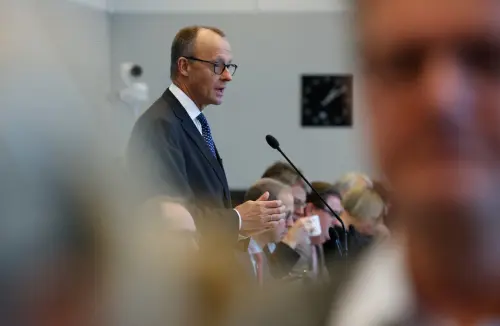German Chancellor-designate Friedrich Merz and the Green Party agreed on a substantial increase in state borrowing just days before a parliamentary vote, with plans for a €500 billion special fund for infrastructure and loosening restrictions on defense investment. Economists predict that these measures could boost economic output by over two percentage points annually for the next decade, leading to a projected growth rate of 2.1% in 2026.
The construction sector is expected to benefit from the infrastructure fund, reflected in stock increases for companies like Heidelberg Materials (up 4%), Bilfinger (up 4.8%), and Hochtief (up 5%). Similarly, the defense industry stands to gain from the plan to amend Germany's borrowing cap, with companies like Rheinmetall, Hensoldt, Thyssenkrupp, and Renk seeing stock gains between 4.5% and 7.5%.
Despite the potential rise in Germany's debt ratio over the next decade, experts suggest that it may reach around 72% of GDP by 2029, below the previous high of 80% in 2010. Maintaining Germany’s AAA rating post-implementation of these plans would rely on necessary political reforms to bolster competitiveness and economic growth.
However, the influx of funds into the economy carries inflation risks, potentially leading to increased pressure on the European Central Bank to address rising inflation. This concern is echoed by Cyrus de la Rubia, chief economist at Hamburg Commercial Bank, highlighting that these fiscal policies could prompt investors to seek higher yields on German government bonds.
